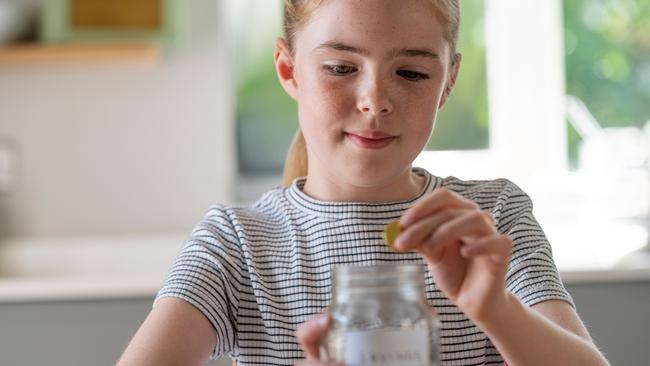Barefoot Investor: The easy ways you can pick ethical investments
Ethical investing in Australia is so hot at the moment, and we’re recognised as some of the wokest investors in the world. And now it’s about to become a whole lot easier for people to grow their super in an ethical way, writes the Barefoot Investor.

Barefoot Investor
Don't miss out on the headlines from Barefoot Investor. Followed categories will be added to My News.
You want to hear something crazy?
The most popular investing question I’m asked has nothing to do with making money.
True dinks.
The investing question my readers have asked me continuously for the past 16 years is:
“What ethical investing funds do you recommend?”
Now, truth be told, I don’t like any of the so-called ethical or responsible stock-picking funds. They always seem to be heavy on the woke-y marketing schtick, which they use to justify slugging their customers with high fees.
For me, it’s the investment equivalent of paying $12 for a kale smoothie, served with one of those ridiculous paper straws that go soggy after the third suck.
Suck, suck, suck. (No juice.)
Thankfully, low-cost index investing has turned the ethical investing game on its head.
In fact, just last week Australia’s largest listed Aussie share fund, the $18 billion behemoth Vanguard Australian Share Index Fund (VAS. ASX), gained a woke sister-fund with the launch of the Vanguard Ethically Conscious Australian Shares Fund (VETH. ASX).
Let’s compare the pair.
Both funds charge rock-bottom fees and give investors exposure to the largest companies in Australia.

However, the Ethically Conscious Aussie Shares Fund filters out companies from the index that are involved in fossil fuels, nuclear power, alcohol, tobacco, gambling, weapons and adult entertainment.
It also filters out companies that have been involved in “severe controversies” relating to labour rights, human rights, environment, corruption and the like. A good example would be Dreamworld’s parent company, Ardent Leisure, which was found guilty and fined over the 2016 water-rapid ride tragedy that killed four people.
(And while Vanguard may be the world’s largest index manager, it’s not the only player: BetaShares, State Street, and VanEck also have low-cost local and international ethical investment offerings worthy of a look.)
Ethical investing in Australia is so hot right now, and we’re recognised as some of the wokest investors in the world. However, know this: your super money is not automatically invested in ethical options straight off the bat.
Investment house SuperRatings says that, while there has been an explosion of low-cost ethical options available in super funds, as a general rule they are not the default investment option most people are put into.
So, if you’re passionate about investing your super in businesses that support the future, ask your super fund what ethical index options they offer … and ideally choose low-cost offerings that don’t suck.
Tread Your Own Path!
READERS WRITE
YOU KICKED ME IN THE GUTS, BAREFOOT
SALLY WRITES: I was really disappointed by your comments last week to Melanie.
While I agree that framing the husband’s gambling expenditure as “what else could that money be used for” was a good idea, the way you said it felt like a kick in the guts to women:
“After all, he’s got a 1-in-140 million chance of winning the jackpot … but if he saved up his money and splurged on a romantic night away with you (without the kidlets) … well, I’ll leave it up to you to explain his odds of hitting the jackpot.”
She is not an object to be bought or gambled upon. You have objectified her and mailed that out to your many followers.
Her “putting out” as a reward for attention and money is also playing into an old and damaging trope of women’s power and value only being in the pleasure we provide for men.
It stinks of misogyny. You can do better, and Melanie (and the rest of us) deserve better than that.
BAREFOOT REPLIES: I’m sorry for offending you.
You need to know that you are not alone — I have been offending people for years.
(Recently I was accused of misandry — hating men — so I am at least an equal opportunity offender.)
In fact, these days I often run my column past my wife, just to make sure I edit out, in her words, “the country boy”.
(This one must have slipped through the cracks.)
So here are my thoughts.
One of the most difficult things about being in a relationship is managing money. That’s why I’ve written into my plan monthly Date Nights, so couples can talk about things over a nice meal and a wine, and stay on the same page. Perhaps I should have just said that, and left it at that.
Still, I’m a lover not a fighter, and I’ll gamble (almost) everything for love.
So I’ll just apologise and thank you for writing.

FIGHTING FOR RIGHTS AFTER FAMILY TRAGEDY
RENATA WRITES:
My sister and brother-in-law were murdered in 2013. I have spent seven years and a lot of money fighting for their orphaned kids — my nephews and niece.
I bought your book and am slowly getting myself out of debt. I have also been fighting the federal government and will be hopefully getting $750,000 for the kids. I want them to make the most out of the money in 10 years. So should I buy them a property? Shares? What should I do?
BAREFOOT REPLIES: What an absolute tragedy. My heart goes out to your entire family.
I don’t have enough details to give you a considered opinion, but I’d caution you not to jump to the final step of “where to invest the money” too soon.
First things first. I’d have a lawyer set up a trust structure that specifies what the money can be spent on (like short-term needs or education) and the age the children will gain access to the money.
That will dictate what you invest the money in, though I’d suggest you focus on easy-to-manage, diversified investments that can be sold quickly and cheaply. In other words, I personally wouldn’t buy an investment property.
Generally, I’m a fan of limiting access to lump sums until children are in their late twenties, when they’re a bit more settled in life. Inheriting large amounts of money when you’re immature, or not mentally prepared, will often do more harm than good.
Finally, I’d work on educating the kids about money so they know that, when the funds are eventually released, they’ll be able to use them to honour the legacy of their parents.
EIGHT-YEAR-OLD TEACHES MUM
JENNY WRITES: My husband and I have been doing the jam jars with the kids since your Barefoot Families book came out.
A few weeks ago, we went to Kmart and my eight-year-old daughter found a hat that she wanted for $6. She said she would save up and come back with the money the following week. Well, we came back the following week and realised she had looked at the price upside-down — it was actually $9. I said, “You know what? You have been so good lately that I will put in the extra $3.”
She said, “No, Mum, how will I learn to save properly if you just give me the money?” I was sooo proud!
BAREFOOT REPLIES:
With kids there’s a lot of slamming doors, tantrums, and “Why are you making me do this!?”
It can feel like there’s not a lot of wins — but you, Jenny, have won the parenting cup!
Your story reminds me of the infamous “marshmallow test” — where young kids choose between one marshmallow now or two later. And it’s been shown that kids who can delay gratification for small things now have the ability to do it in the future with big things.
In other words, show me the girl at eight, and I’ll show you the woman at 28.
She’s Got This!
Information and opinions provided in this column are general in nature and have been prepared for educational purposes only. Always seek personal financial advice tailored to your specific needs before making financial and investment decisions.
If you have a money question, go to barefootinvestor.com and #askbarefoot.
The Barefoot Investor for Families: The Only Kids’ Money Guide You’ll Ever Need (HarperCollins) RRP $29.99
Originally published as Barefoot Investor: The easy ways you can pick ethical investments
